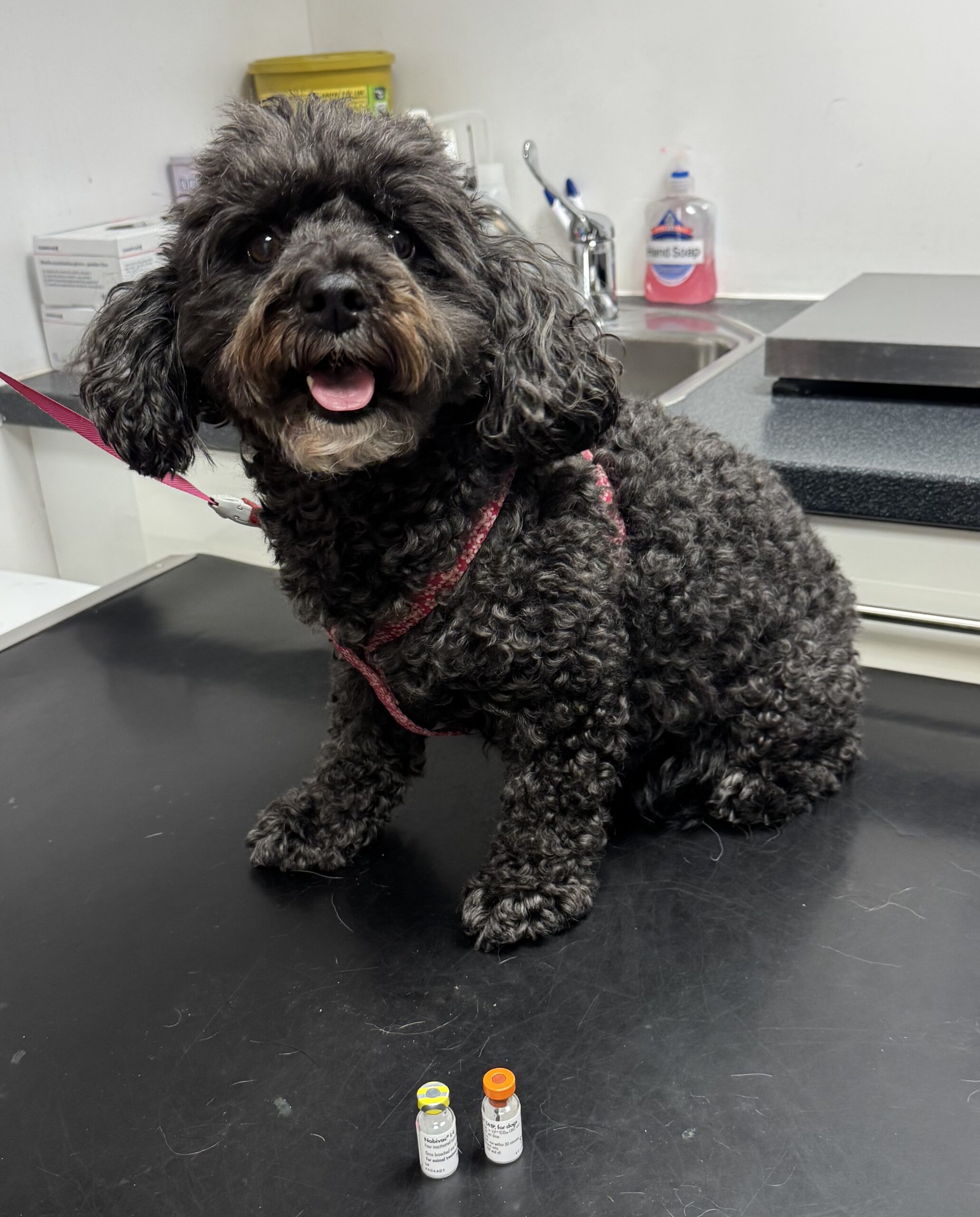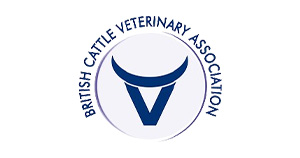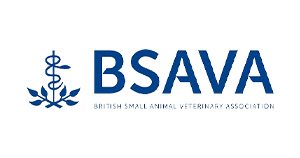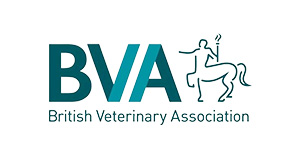Vaccines: The importance of vaccinating your pet – Expert Advice from Shepton Vets
As dedicated veterinarians at Shepton Vets, our primary goal is to ensure the well-being and longevity of your beloved pets. One crucial aspect of preventative healthcare that often stirs debate is vaccination. We understand that as pet owners, you want the best for your furry companions and may have concerns about vaccines. Our responsibility is to provide you with informed, professional advice based on the latest scientific evidence, so you can make the best decisions for your pet’s health.
With the age of the internet and social media, there appears to be more controversy than ever surrounding vaccines, be they for ourselves, our children, or our animals. As pet owners, there is no obligation for vaccination, and it will always be your choice, but as vets we have a duty of care for your animal and it is our job to recommend the best possible preventative health care. I would never want to preach or patronise but I think it is always really important to offer our qualified and professional advice, in line with the experts in their field, following the best up to date scientific evidence available to us, so that we can allow you to make an informed decision on your pet’s health care.
It’s important to educate owners about what vaccination is, what it is designed to protect against and why, and how often we should do it, so that a decision to vaccinate or not can be truly informed. It’s our job to provide that information, and perhaps part of the reason there may be an increasing number of public doubts about the need for vaccination is because we as a profession haven’t been communicating this to the best of our ability. The best time to provide this information and have a discussion about vaccination is usually during a puppy or kitten’s first visit to the practice. It’s too large a subject to discuss in detail in this article, but vaccination as a very basic explanation involves injecting a vaccine containing inactivated parts of particular diseases (antigens) to stimulate an immune reaction so that the body can produce a protective defence (antibodies) if exposed to the actual infection.
Vaccines are important
We only have to consider horrible, killer diseases such as smallpox and polio and the effect vaccines have had in eradicating these big threats to the human population. More recently we are thankful that a Covid-19 vaccine is offered on the NHS to people at increased risk of getting seriously ill from COVID-19. Rabies is another well known disease that fortunately is being controlled in the developing world due to vaccination, and we are also able to provide this vaccination in the veterinary world. More routinely, we vaccinate dogs, cats and rabbits against such fatal diseases as parvovirus, leptospirosis, feline leukaemia virus and myxomatosis. These diseases may not personally have been witnessed within an owner’s lifetime, but that doesn’t mean that they are not very real threats to our pets, and the damage that they can do to an animal is still seen in veterinary practice regularly.
The worst part of my job is seeing suffering and deaths that can be preventable, and I feel, as well as the majority of the veterinary profession, that we are very fortunate to have vaccines available. Because of these vaccines, we don’t see as much of these diseases as we used to so maybe we can subconsciously become less aware of the importance to prevent them. You only have to look back to the James Herriot days to find out about the fatal disease distemper and the devastating effect it had on dogs throughout the country – distemper is one of the diseases that our standard vaccine can protect against. An argument I often hear is that some peoples’ animals never had any vaccinations and didn’t suffer from these diseases, but this is largely due to the effect of ‘herd immunity’ – if a proportion of the animal population is vaccinated, they will protect those that aren’t. The worry is that with internet rumours and scaremongering about vaccines, this proportion of vaccinated animals will drop below a certain threshold, leaving a route for the likes of distemper to come back and cause widespread illness.
Rumours about vaccines being unnecessary and even dangerous are unsupported by good quality scientific evidence and often spread by people with no professional background. These rumours can spread a lot more easily with the prominence of social media, but if they are to be believed they can end up leaving our pets very vulnerable. I find it personally upsetting that owners may choose to believe an unregulated website or a source from Facebook over myself and my colleagues, after working hard for years to study the best possible evidence available, but ultimately it comes down to the trust between you and your veterinary surgeon. Even if the source is someone known and trusted, could somebody’s bad experiences be down to coincidence? Adverse reactions do happen, and it’d be unrealistic to think that vaccines are perfect. If any reaction is suspected from a vaccine, it has to be reported to the manufacturer, whether proven or not. The evidence we have about adverse reactions suggests that these are very, very low (between 1 and 6 in 100,000 depending on vaccine) and these reactions may be as mild as a period of lethargy or a few episodes of vomiting.
So on balance, I will always explain that the risk:benefit ratio is far outweighed in favour of vaccines, as the chances of contracting the diseases we protect against, and the illnesses they can cause will be far more likely and severe than a vaccine adverse reaction. Specific vaccines such as L4 have recently been the target of unfair and inaccurate online scepticism, but this is a really important vaccine to have available in our armoury. These kind of unfounded reports often surface against certain treatments from time to time, be it reliable flea or worm treatment or really important medications, and will often originate due to an initial grudge or a very unfortunate coincidence. Another important myth to dispel is that one set of vaccines can be all your pet needs – the best scientists we have prove that initial vaccinations don’t provide life long protection, and the usual protocol is to top up every three years, with the exception of the slightly different but very important leptospirosis vaccine, which is yearly – though the importance of an annual health check and pet ‘MOT’ cannot be understated either.
I am a vet, but above all I am a pet owner and animal lover, and I would never advise anything that I wouldn’t give to my own animals. I personally receive no commission on vaccinations, I just want to advise the best possible health care for your own animals. If you have any questions about the importance of vaccination, please, please don’t hesitate to contact your vet.
At Shepton Vets, we firmly believe that vaccination plays a pivotal role in protecting your pets from devastating diseases. Vaccines have revolutionized both human and animal medicine, eradicating deadly illnesses that once plagued populations. Our commitment to providing the highest standard of care extends to offering detailed information about vaccination during your pet’s first visit and beyond. We stand by the scientific evidence that overwhelmingly supports the importance of vaccination, outweighing any potential risks.
We encourage you to engage in open discussions with our team, ask questions, and voice any concerns you may have about vaccination. Your trust and the well-being of your pets are of utmost importance to us. Let us work together to keep your furry companions healthy and happy for years to come.
Call to Action:
If you have questions about vaccination or wish to schedule a comprehensive health assessment for your pets, don’t hesitate to contact Shepton Vets. Our compassionate and knowledgeable team is here to address all your concerns and provide top-notch veterinary care for your cherished companions. Give your pets the gift of protection – vaccinate today!
Protect your furry companions from preventable diseases with vaccination from Shepton Vets. Contact us now to safeguard their health for a bright and happy future.













